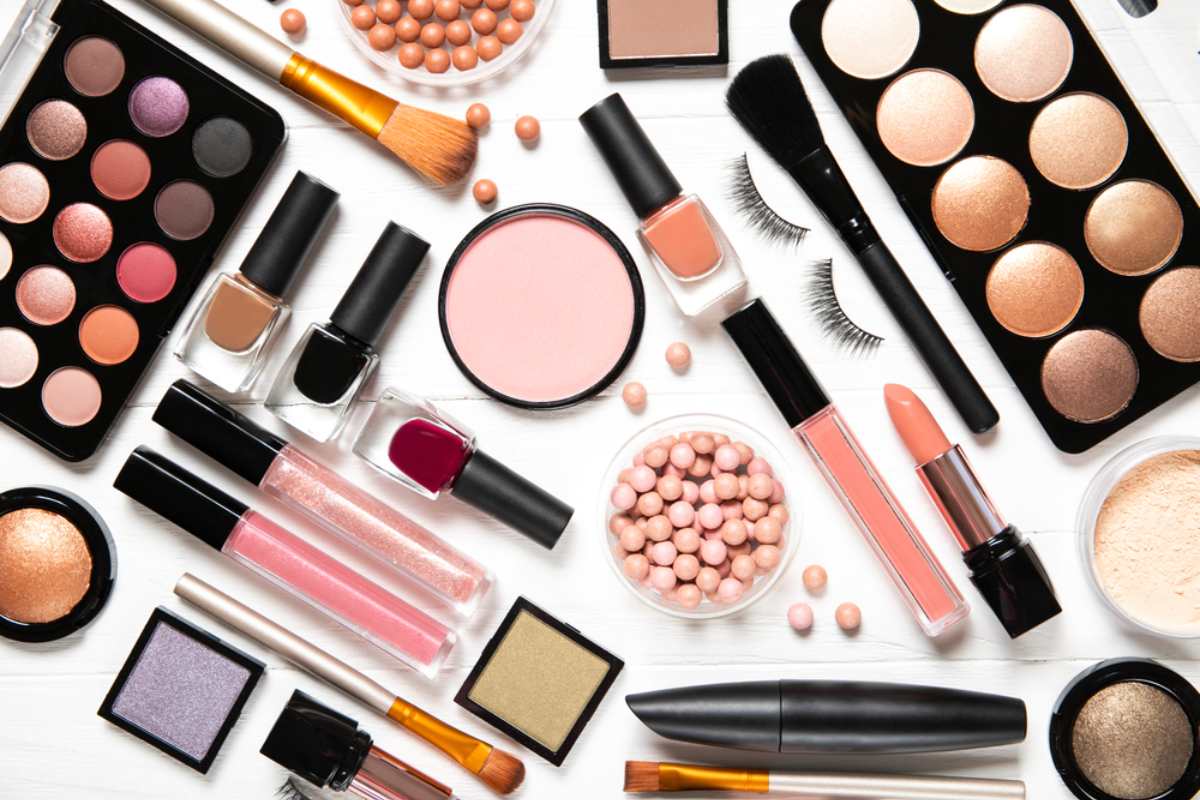All About Metals in Cosmetics – Today, people are more curious than ever before about what’s in their skincare products, with great concern about whether the ingredients are natural. One ingredient that has raised some eyebrows is non-ferrous metals, as a number of people are concerned about the effects of metals in skincare on our health. Unfortunately, there isn’t a straightforward answer to whether metals are beneficial or harmful to the skin.
Some people are allergic to certain metals, so these metals would obviously have a negative effect on these individuals. If you’re curious about the effect that metal may have on our skin, read on to learn more.
Table of Contents
Does Makeup contain Metal?
Aluminum, nickel, arsenic, cadmium, mercury, and lead can all be detected in a number of cosmetics. The manufacturing processes of makeup will determine whether it contains metals or not. As far as lipsticks/lip glosses are concerned, 33 popular brands that were tested. Out of these, all 24 lip glosses and eight lipsticks contained a minimum of one toxic heavy metal. Fortunately, though, tests have demonstrated that the dermal penetration of heavy metals tends to be very low. Despite this, users of these products need to be careful when eating or drinking, as touching the cosmetic product and then touching food could lead to ingestion of the metal.
Is there Metal in my Makeup?
There are various ways in which you can determine if your makeup is metal, the first being the use of a magnet. Quite simply, if your makeup sticks to the magnet, you can say with complete confidence that the makeup contains metal. Exposure to metals can have both immediate and long-term effects, and these effects can be chronic or acute. Chronic poisoning takes place when a person has been exposed to particularly small doses of an irritant over an extended time period. Acute poisoning takes place when a person is exposed to a high dose of heavy metals.
The Risks of Metal Exposure
Metal exposure can result in a number of health problems, including reproductive toxicity, neurotoxicity, and cancer. These issues can present themselves by way of direct or indirect exposure to metal. As a result, carcinogenesis can take place, which is a process in which cancer cells form. The areas most prone to cancer from metal exposure include the liver, lungs, and skin.
Neurotoxicity describes the nervous system being affected, which can result in a number of neurological disorders. These include schizophrenia, Parkinson’s disease, and Alzheimer’s disease.
Reproductive toxicity, on the other hand, refers to negatively impacted reproductive health. This can present itself in the form of miscarriages, reduced fertility, and birth defects.
Nickel in Skincare Products

Nickel is a metal that’s commonly used in skincare products to protect the skin from the sun. Unlike other metals, though, nickel is proven to be safe for use on the skin, as it helps reflect ultraviolet light. As a result, it’s best used in sunscreens, as well as skin products that act as antioxidants. That said, nickel allergies affect around 8% of people, meaning you should ensure you’re not allergic to nickel before applying nickel-based skincare products to your skin. As with any new skincare product, you should always do a patch test to ensure your skin doesn’t react badly.
Organic Skincare Products
In order to avoid the risk of irritation, you should opt for organic skincare products. If you’re reacting negatively to cosmetics, it’s usually down to the number of chemicals in the product. Natural products are among the safest to use, with the least amount of people being irritated by such. That said, you need to bear your budget in mind, as organic skincare products can be expensive.

